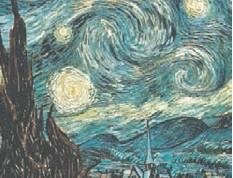A life worth living
the editor talks with you
My parents not only loved each other. They were passionately, inspiringly in love with each other. One of my fondest memories is of lying …
This item is available in full to subscribers.
Subscribe to continue reading. Already a subscriber? Sign in
Get 50% of all subscriptions for a limited time. Subscribe today.
Please log in to continueNeed an account?
|
A life worth living
the editor talks with you
My parents not only loved each other. They were passionately, inspiringly in love with each other. One of my fondest memories is of lying in bed, hearing them laughing with each other in their dark bedroom across the hall. What they laughed about I could not make out. But that wasn’t important. It was that they loved being together. I decided then that theirs was the kind of relationship I wanted with whoever the girl of my dreams would be. Love makes life worth living.
Here’s a touching example of this. Paul Broks’s wife Kate was dying. “You don’t know how precious life is,” Kate told him on her deathbed. “You think you do, but you don’t.” Broks writes about this in his book, “The Darker the Night, the Brighter the Stars.” Kate and Paul loved and lived their lives together as fully as they could before she died of cancer in her late 50s. Kate’s words left their mark on Paul. Did he understand life’s value? What does it mean to live well? These are the questions Paul asks in his book about life’s and death’s mysteries.
As a neuro-psychologist, Paul studied the relations between our marvelous and complex organ, the brain – “1,200 cubic centimeters of gloop that fills our skulls” – and our minds, those thoughts, feelings and sensations that “give us our sense of self.” Is there, he asks, such thing as a “self,” or what some might call a soul? Are we, as philosopher René Descartes suggested, physical machines guided by a nonmaterial spirit? Is the concept of a soul an illusion we evolved so that we see individual life as something precious? Philosopher Arthur Schopenhauer saw life as a sliver of consciousness between slabs of eternal nothingness. Paul writes that it’s better to confront a harsh truth than swallow a consoling lie.
The relations between brain, mind, self, and soul is confusing, writes Paul, whose patients inhabit a twilight zone. One in her early 40s experienced a sudden case of amnesia. When her father died a few months later, she didn’t know him well enough to cry. Another, a loving father and husband, became unrecognizably angry and abusive after a nasty car crash. His wife tolerated this in the belief that deep down at a magical core was the man she married.
This reminded me of a personal experience. When depression overcame my mother, she tried to end her life. My father stood by her, found a psychiatric hospital where she could be treated and hired a succession of housekeepers to look after his unruly children. The leader of that unruly bunch feels guilt that we caused her depression. When she had a relapse and went back to the hospital, my father persevered, this time with a bit more cooperation from the leader of the unruly children. Their love for each other and their life together inspired those unruly children long after they became adults and bore unruly children of their own. A lesson they taught was Paul Broks teaches: The darker the night, the brighter the stars.
Special for the New Year.
Get your 2019 off to a spectacular start with our new “Maverick Entrepreneurs’ Million Dollar Strategies.” Inspire yourself or a friend with a personally-autographed copy for only $20. Call 359-7633.
Other items that may interest you










Comments
No comments on this item Please log in to comment by clicking here